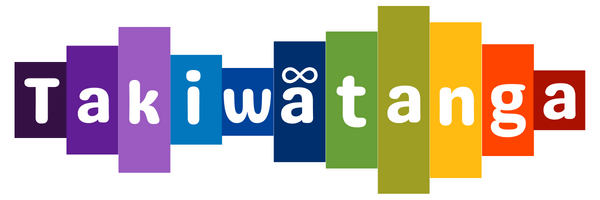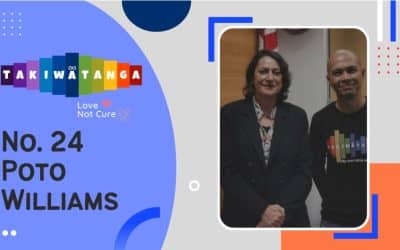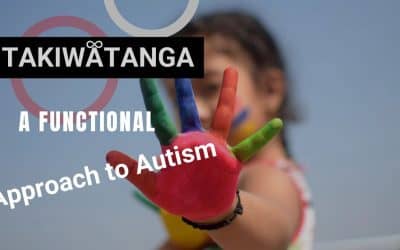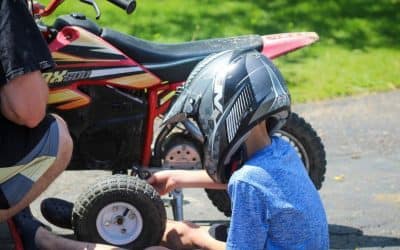How much do you know about takiwatanga?
Why create Māori word for autism?
Why even bother and care about autism?
Hi everyone, Thank you for listening, this is our first episode for this podcast. I know there are a lot of questions we want clarity on about autism. There are a lot of worries and anxieties with parents and carers. With this podcast we might be able to learn and explore strategies and then apply those strategies and see what works for us… Just so you know, I am not an expert on this topic nor trying to be one. I am just like any parent on this journey trying to learn and understand about the spectrum, and maybe, just maybe this show can be a medium to help someone who wants to know about the autism spectrum.
This podcast is not just about autism awareness and it is also about sharing ideas and strategies and applying them to see if they will work.
If a strategy works for you, that’s amazing… if not, let’s move on to the next strategy and try that and see if that will work. If not, move on to the next until we find what’s best for us. Let’s focus more on strengths rather than fixing the weaknesses. Let’s see things positively because in every situation and in any condition, there will always be something that we can get out of that instance that can help us become stronger so we can support our families.
Thank you for tuning in, we have lots of things to cover. I hope we can all work together and help each other out so we can enjoy this journey of autism. In the end, if we can help an autistic person get the life skills they need to live a happy life, then we are successful no matter how small or big.
Before we dive deep with this topic, please make sure to share this to your family and friends,
So others who might need to find us can find us easily.
I would like to tell you a little bit about my background and why I am doing this. For the second time around I have decided to put this show up again to continue my autism journey again. I shut down the first podcast I set up more than a year ago and stopped publishing content.There are challenges I have experienced and I lost my track in maintaining that podcast plus I had this impostor syndrome in me where I kept asking myself why am I doing this and why I should continue with it. I am not even an expert about autism, let alone my background is not even in the medical field. And then there was a time where I got overwhelmed and just stopped publishing content about autism. I had other channels as well and I also shut them down. After more than a year I still think about this podcast and everyday I questioned myself why I shut myself down. Story short and after winning my battle with myself I am now here in this first episode and looking forward to winning more!
I have three kids and one of them, who is my youngest son, was assessed with autism. This is one of the reasons why I am putting back this podcast again. To explore, learn and apply the strategies I will come across with. I believe the more I can publish around autism will perhaps, help me and you understand autism more.
I have to say, it is super challenging as parents and also there are a lot of ideas and strategies that we need to think about and try to see what will fit and work to our case and to make sure that these kids will be successful in life. Anything that can help parents, carers and people with autism, we will share them here.
I am super keen to have my wife join in future discussions. Soon we will do that, we’ll find some time for that.
Again, I would like to emphasize that I am not an expert on this topic. I will just share some insights on what I have come across. I always believe that you do not have to be an expert to share information that can or may help others.
Autism is not one size fits all. So every strategy worth sharing, we will share so you can apply… and I hope this podcast can be one source of those many strategies that you can try.
Ok, so enough about me for now, we’ll get more opportunities in the future as we progress with this podcast.
Let’s talk about Takiwātanga – its origins, meaning, and why you should care…
Takiwātanga is the Māori word for autism. It means “His or Her own time and space”. The word was coined by Keri Opai during the time he was working with the glossary Te Reo Hapai (Language of enrichment). . . This glossary was created because as we are all very much aware, a lot of clinical terms used like ASD or autism spectrum disorder focuses more on the negative side i.e disorder, which means no order. This is limiting the person’s belief and abilities that they can contribute to society while enjoying life. Often we want these people with autism to live a normal life in a society but what is normal? How do you define “normal”? Does it mean that if it is something that doesn’t conform with our own standards, it is not normal? And talking about standards, whose standards are we talking about here?
Why can’t we just focus on being a human being to others? So rather than focus on the negative, let’s focus more on the positives and maybe that’s what really means by the word “normal”… Anyway, before I go further away from our main agenda let’s pause from there, let’s go back to the term Takiwatanga.
Takiwātanga for me, is by far the best definition ever created for autism. Thanks to Keri for coming up with such an amazing term by the way. By the looks of it, would you rather use the term autism spectrum disorder or Takiwātanga. I checked google , one source says, disorder is a problem or illness which affects someone’s mind or body. Another source defines it as an abnormal physical or mental condition. While others say it’s a lack of order.
So when you define autism as a disorder, you are saying that it is a problem or illness. I know there are a lot of challenges around it but for me, illness is such a heavy word to use for this. It sounded like there is an illness and I need to cure it. Autism as I understood it, it is not something that you cure. Autism has something to do with how the brain is wired. I read that a person who has autism usually has more neurons than a neurotypical. That’s why most autistic people have bigger brains. If we are to cure it, does it mean we will reduce the size of their brains so we can reduce their neurons?
On the other hand, when we look at Takiwātanga, the definition is very positive and doesn’t say anything about the person being a problem or an illness. It’s just simply defined as His or her own time and space. By definition, this is exactly how autism should be defined. For me there should be no fear of being labeled as a problem or having an illness that needs to be cured… yes I agree that there is help needed, there is support needed, there is more understanding required but we can always help people regardless and not put some negative label over it before we can get help…
So what I liked about the term takiwatanga is that it is not judgemental and does not limit one person in doing things they want based on the label. They just have their own time. Just like plants. Not all plants are the same, they don’t grow at the same pace, They do not have the same height or even leaf colors. They too have their own differences just like us humans. They use their own unique characteristics to empower themselves. Which is amazing right? We are all different, we have different skills and strengths. That’s what differentiates us among other human beings. Otherwise we are all just going to be robots, programmed to do one thing, no differentiation and that’s boring right?
That’s what I like about the term Takiwatanga, we all have our own time and space. Takiwatanga doesn’t define a person as a disorder or as a defect. Pretty cool huh?!
How about you? What did you like about the term takiwatanga? Comment down below if there is a space to do so… other than that, feel free to discuss among your friends and relatives. This term is worth sharing as well.
For our next episode, I will share my interview with Keri Opai about Takiwatanga and Te Reo Hapai. As mentioned I had a podcast and I published that interview before but I will republish it so we can have the insights from that episode made available for all to consume. I think it will be an amazing 2nd episode.
Anyway, we have more discussions ahead of us for this podcast. So stay tuned.
If you have questions or you have any topic in mind that you want us to talk about let us know, and we’ll catch you later.




0 Comments